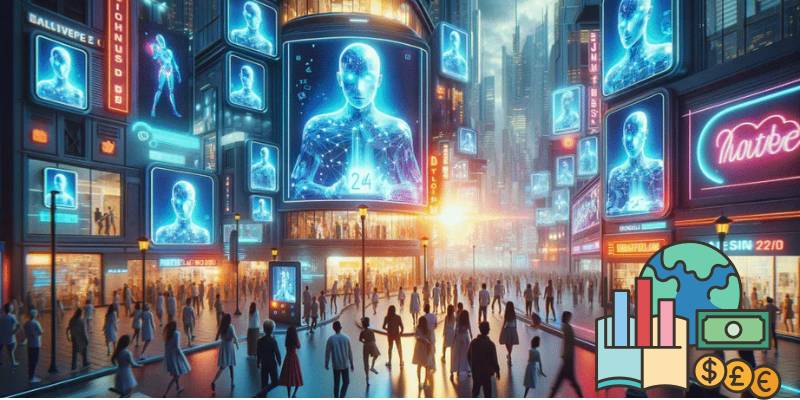AI-generated influencers are no longer hidden Easter eggs—they’re front and center, acting real, posting regularly, and even closing brand deals. But behind that digital charm lies a complex tangle of ethical dilemmas, market shifts, and questions about authenticity.
A landmark study in the Financial Times spotlights this trend, showing how AI influencers—with names like “Tinsley”—are evolving into slick, scalable alternatives to humans for brands craving both control and cost-efficiency.
Tech players like Meta, Synthesia, and Fameflow AI are rolling out customizable avatars and campaign automation solutions that make this possible.
What’s driving all this? For one, budgets. Virtual pals don’t need rest, they don’t demand pricey location shoots, and they follow scripts to perfection. But it’s not all business: these AI charmed their way into marketing by blending photo realism with tailored interactivity.
Still, the human touch hasn’t disappeared completely. A brand might save on production with an AI star—but studies show real people still win in engagement and income. And that makes sense: humans crave authenticity, stumbles and all.
Here’s the rub: as AI stars gain traction, few brands are disclosing their synthetic nature. That oversight has created a consumer trust deficit—some followers feel misled, while insiders warn of a looming backlash.
Ethics aside, there’s also the legal side brewing. Regulations and watermarking standards, especially for entertainment media, are still catching up. The absence of clear rules means even well-intended content can cross into murky waters if transparency isn’t baked in.
Then there’s the story about Nexon, the gaming company, which found itself in hot water over AI-generated influencers in a TikTok campaign.
Characters that people assumed represented actual streamers turned out to be synthetic. Now there’s an ongoing review into how that slipped through TikTok’s vetting system.
All this is more than a passing fad. Brands are tuning into AI influencers’ flexibility—perfect for micro-targeted campaigns and 24/7 activity—but the question is whether audiences will accept the switch.
Digital native Gen Z might explore AI-driven content, but they often demand transparency and “being real.”
In my view, AI influencers are a fascinating frontier—but the brands that win in the long run will be the ones that balance innovation with honesty.
If trust continues eroding under perfect pixels and zero disclosures, it could backfire fast. Making sure audiences know who—or what—they’re engaging with isn’t just ethical—it’s smart business.

